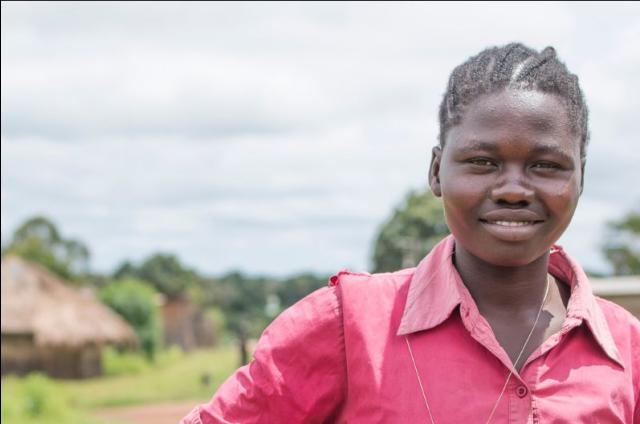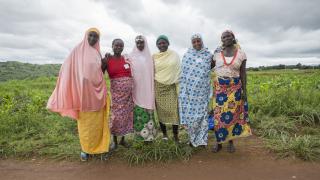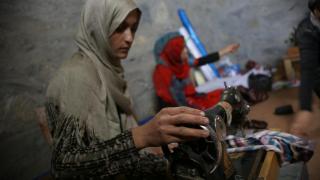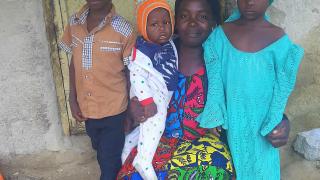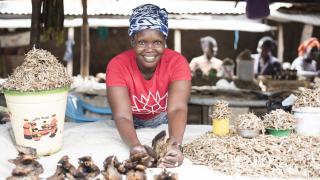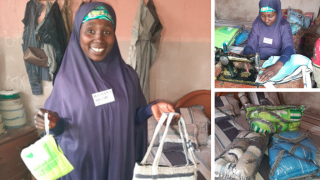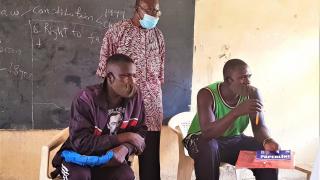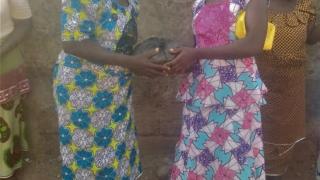From Conflict to Collaboration: A Couple's Transformation
From Conflict to Collaboration: A Couple's Transformation
The journey of two graduates of our programme, Mawa and Jackline, finding peace through our programme
Mawa and Jackline have been married for six years. They live in Wuluturu, Yei River County, South Sudan, with their two children. Their marriage was on the brink of collapse when they were enrolled in our Couples Connect Pilot Programme.
Today, Mawa shares that they now live together in harmony. Here is his story.
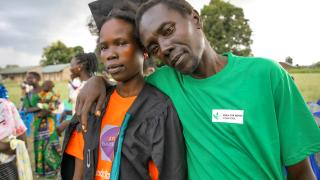
In my culture, being a man means being the head of the family. This title comes with responsibilities but also a lot of privileges.
As the head of my household, I was raised to be the sole provider and decision-maker. Everything I said or did was final. My wife wasn’t supposed to seek financial independence or earn a living; she was meant to stay home and take care of the family.
This belief shaped my expectations when I got married.
To my surprise and frustration, my wife was not the obedient woman I expected. She had a mind of her own and wanted to contribute financially. She would buy things for our home without my input, prepare meals with money I hadn’t given her, and even engage in small businesses and casual labour to make her own money. This independence didn't sit well with me. I was suspicious - where did she get the money? Why was she always away from home? Was she trying to compete with me or, worse, undermine my authority?
My suspicions turned to anger. I verbally insulted her and sometimes became violent. I threw away food she prepared with her own money and restricted her movements.
Our home became a battleground, and we became enemies living under the same roof.
One morning, my wife suggested we join the Couples Connect Programme with Women for Women International.
Initially, I was hesitant. But she mentioned that we might receive financial support if we attended together. Reluctantly, I agreed, motivated only by the prospect of money.
As we participated in the programme, something remarkable happened. We learned about teamwork, sharing responsibilities, effective communication, problem-solving and financial management.
Slowly, I began to understand and appreciate my wife’s efforts.
We started talking again, discussing business, farming and our children. I began supporting her business and we started working together. By the end of the programme, we received some capital, which we invested in her business.
Today, our lives are transformed. I can relax a little, knowing that I don’t have to shoulder every burden alone.
We are a team.
Recently, I developed an illness that affects my ability to walk or stand, making it difficult for me to work. My wife has become the primary breadwinner, contributing up to 70% of our family’s income. I now support her as best I can.
I am grateful to Women for Women International for this life-changing programme and for giving me another chance at love.
I am also grateful to my wife for being strong and persistent.
Without her, I don’t know how I would manage in my current condition.
To all women, I encourage you to support your husbands and not give up on your families. And to the men, I hope you learn from my experience: support your wives, and if you can’t support them, at least don’t stand in their way.
keep reading
After two decades of progress and backlash, what’s next for the Women, Peace and Security Agenda?
subtitle:
Three recommendations to preserve progress and address ongoing challenges to women's rights in conflict settings.
Gul Jan's Story
subtitle:
As she prepares to graduate from our programme in Nigeria, Saratu’s future looks bright - despite the challenges of a global pandemic.
Women Pave the Path to Peace in South Sudan
subtitle: As South Sudan marks Peace Agreement Day this year, it stands on the brink of another deadly crisis. But women hold the key to a brighter future.
As South Sudan marks Peace Agreement Day this year, it stands on the brink of another deadly crisis – but women hold the key to a brighter future.
Thank you for being part of a year in which women survivors of war have led their families and communities through unprecedented hardships and uncertainties, towards a brighter future.
Hassana's Story
subtitle:
When Boko Haram attacked their village in northern Nigeria, Hassana and her family were forced to flee. With support of UK aid from the UK government, she enrolled on our programme last November.
Art Consultant Carrie Cunningham shares the inspiration behind a new all-woman Art Show raising funds for Women for Women International
Today is #GivingTuesday: a global movement unleashing the power of people and organisations to transform their communities through generosity. Celebrated around the world, #GivingTuesday is the perfect day to come together and support women affected by conflict. Here are all the ways you can give back on 1st December.
Men in northern Nigeria demonstrate the important role of male allies for women’s empowerment
subtitle:
On International Men’s Day, the Magama community offers an inspiring example of what can be achieved when male allies support women’s rights and gender justice
On World Kindness Day, a group of women in our programme in Nigeria show us how compassion can make the world a healthier, happier place.
Your Meaningful Holiday Gift Guide
subtitle:
This Holiday period, treat your loved ones (and yourself!) to gifts that have the power to transform lives. We’ve put together a list of meaningful gifts for our global sisterhood that donate a percentage to our work with women survivors of war.
We are thrilled to announce Clarissa Ward, CNN’s chief international correspondent, as our newest Ambassador. Here she shares her advice for staying connecting and using your voice to create change.

